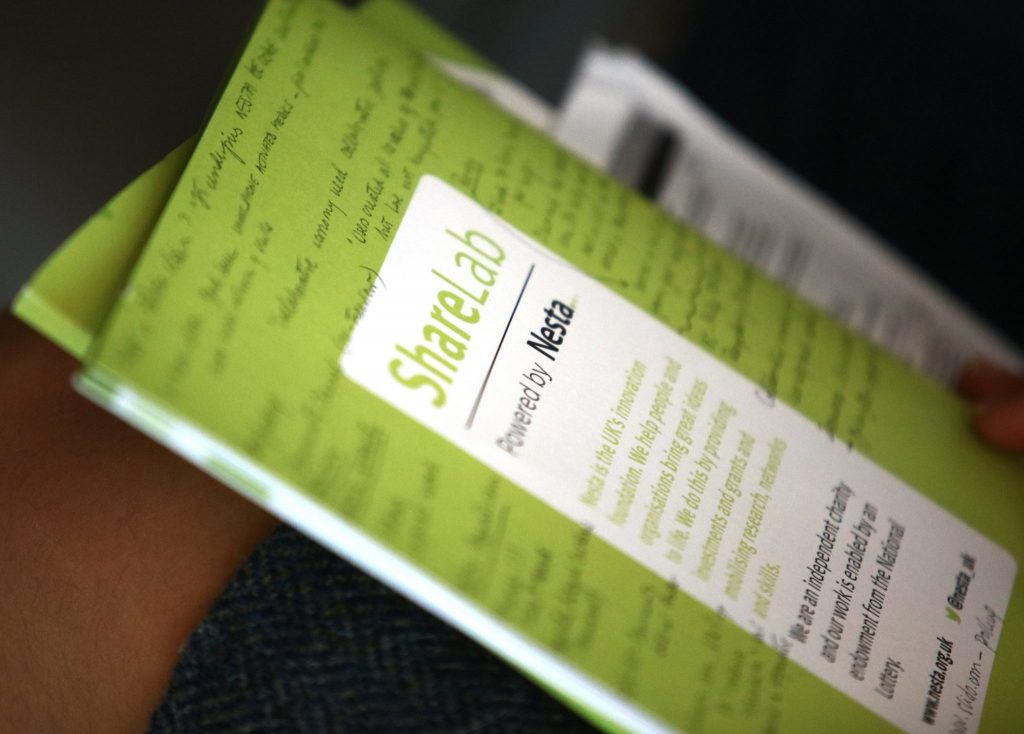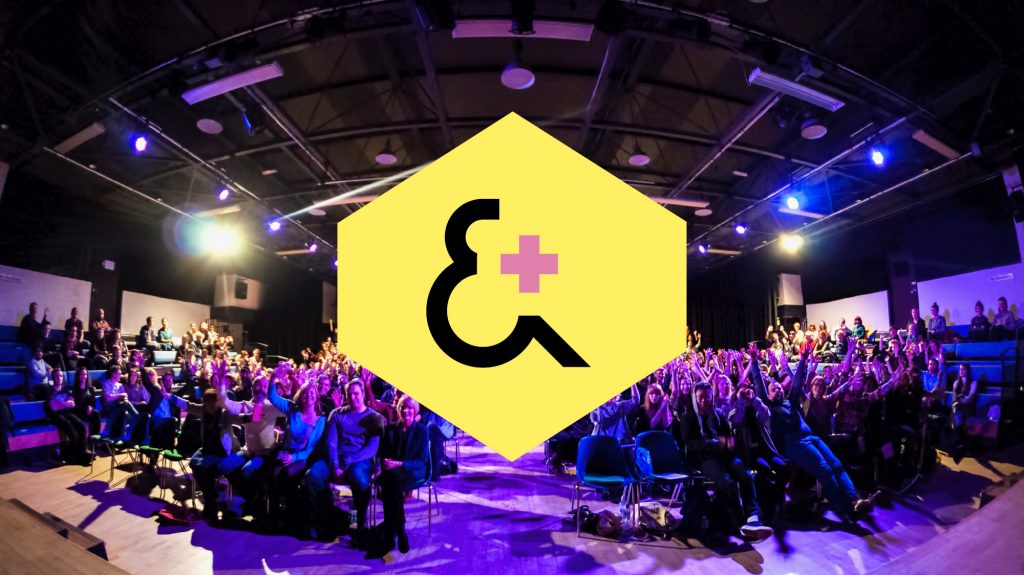
A feature by Claire Dufour from Creative Dundee.
In November, ShareLab brought together over 200 policymakers, entrepreneurs, innovators and researchers to better understand how public services, civil society and the private sector can engage with, develop and harness collaborative platforms for good. During this full-day event we heard from a large spectrum of examples from international corporations such as Airbnb and Just Park, to local initiatives like Impact Hub Birmingham, MAKLab and the Library of Things.
The collaborative economy impacts our relations with each other and to things by facilitating new forms of interdependent relationships between people and with the things that we own and/or use. It makes existing networks more visible and accessible, and creates new forms of online marketplaces and open-source communities. There is a variety of models and platforms that exist today, from the sharing economy models that focus primarily on commercial transactions – even services that enable peer-to-peer exchange can be primarily profit-driven – to the collaborative platforms which put the social purpose first and manage to get large communities together around shared ethos.
But, what does a social purpose collaborative economy look like? What are the opportunities for such collaborative models of sharing things, skills, knowledge, time, etc, and more importantly what are the challenges?
There are many examples of collaborative governance that are trying to embed circular solidarity and civic collaboration in our society – where citizens take ownership of urban commons – and which show how horizontal connections can speed up relationships between people who make changes. One of those examples was presented by Deputy Mayor of Paris for Circular Economy, Social Economy and Social Innovation, Antoinette Guhl who talked about a new governance for the cities which they’re experimenting in the French capital. The citizens are invited to choose the projects they want to see developed through a ‘participatory budget’, and therefore input ideas into political thinking. Last year, the projects that were voted for all include strong social and environmental values – solidarity with homeless people, smarter waste management and vegetalisation of the city. (Read more about why Paris is building the world’s biggest participatory Budget here and the lessons learnt by the team behind the process here.)
This approach is not new, more and more cities and towns are adopting it, from New York, to Barcelona, to the small communities of Brechin and Montrose in Scotland – read more about the PB Scotland Network here. But, are those democratic models of sharing economy fashionable experiments or sustainable projects? How difficult is it to develop new ways of collaborative citizen engagement? If you give people power, you need to trust them, you need to trust they’re going to make expert contribution or find democratic ways to regulate this extended social responsibility.
Following this, I took part in really interesting breakout sessions, one about the collaborative models for learning and making, and the other one about the limits and potential of the commercial collaborative economy. What strikes me the most between these two debates was that:
On one hand, the commercially focused models are now questioning the negative impacts and social responsibilities of profit-driven services. They have to carefully negotiate with the downsides of placing an economic value on every single thing – which has the potential to erode the social values attached to sharing.
Whilst, on the other hand, the models of collaborative economy which are driven by a social purpose – sharing knowledge, skills or trying to make a positive impact in a city – are excellent at designing shared ethos and inclusive models of decision-making and participation for their members, but seem to struggle to find sustainable economic models, relying too much on public grant or voluntary workforce.
“People join in for what they can get, but stay for what they can give!”
So, how can we develop alternative models which have positive social and environmental impact while being economically sustainable? Who are taking the risks and how can we support those who fail?
I believe (with many others) that the collaborative economy should go hand and hand with social innovation, and that Dundee as a small city is the perfect place to experiment and spark new forms of collaboration. There’s a spirit in the city of mutual support which is very refreshing and through the activities of individuals and organisations, including Creative Dundee’s crowd-powered projects, we have grown as a creative cluster – creating more opportunities to hear what people are up to, to network, to find future collaborators and friends, also being part of something bigger, and give back to the creative sector.
Fabric Dundee and our latest project Creative Dundee Amps are examples of how we can experiment together (and link-up things together) in the city. Fabric Dundee invited individuals in Dundee’s creative community to explore the city’s creative sector and feed into the city’s new creative strategy, whilst Amps kick-starts a Community Ideas fund, where members can bid for collaborative projects and vote on who receives the funding.

Creative communities are vital to Dundee’s growing reputation as a global cultural hub. We’ve created the Amps project to help us all create a better way to build Dundee’s local creative scene, our communities and the future of the city.
Nesta (innovation foundation) has opened a ShareLab Fund to support ideas and initiatives that can show how collaborative platforms and models can support public services and deliver social impact – offering funds of between £10,000 and £40,000 plus non-financial support to stimulate experimentation and collaboration. Deadline for submitting an expression of interest online is 9th Dec, see how to apply here.
More articles about the collective economy by Nesta here: http://www.nesta.org.uk/project/collaborative-economy.
